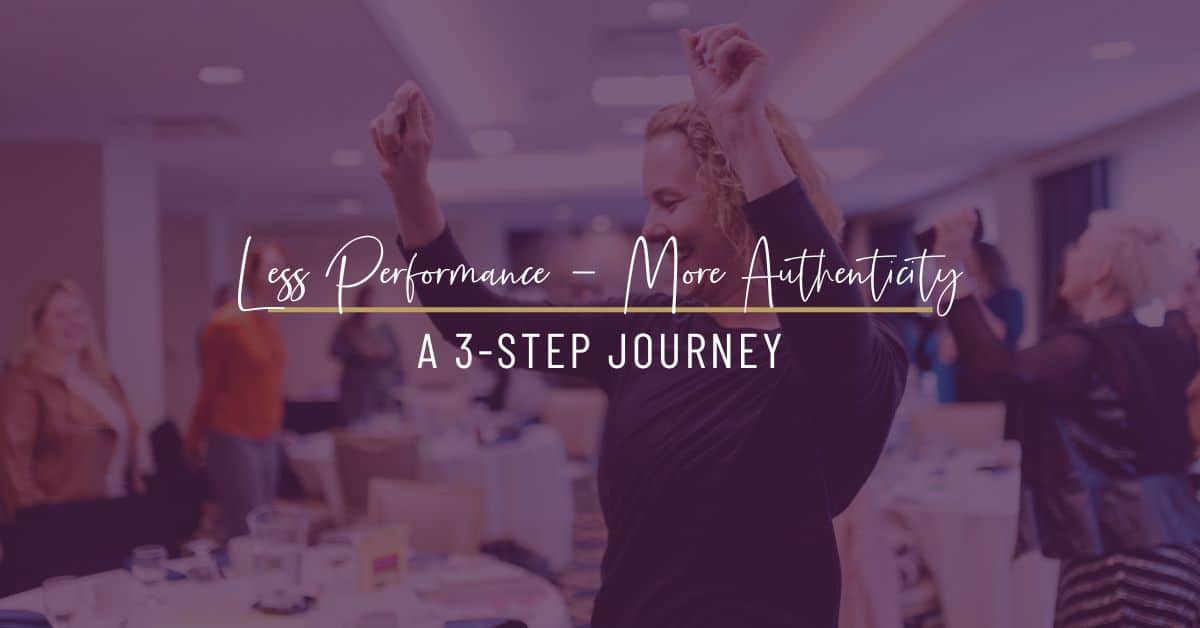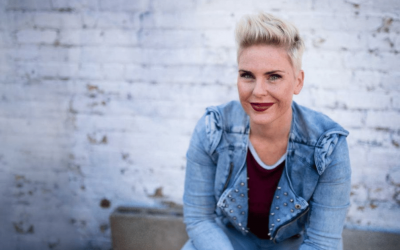Have you ever witnessed someone and you just felt that something was off? You could see it, feel it…a discomfort in how they were presenting themselves?
Think about the last time you met with someone to either hire their services or to buy something, or you watched someone speak and you just felt something was off. Like they were trying too hard, or hiding.
Now think about a time you met with someone who put it all out there authentically, vulnerably, and courageously.
You can feel the difference between a performance and truth.
You can pick up on it when someone is being free, even if they are performing, versus when that same person begins performing from a perceived notion in their head. The energy shifts, for them, and for everyone else too.
Truth is expressed in a different way than expectations are. It feels different and it creates different outcomes and results.
One keeps you stuck and the other sets you free.
A few days ago, when I was connecting with team member Alexa on a call, we had the opportunity to embrace this freedom of authenticity in real-time. We were putting the finishing touches together for Align to Unleash, our workshop for small business owners to help them get clarity in their vision and a strategy to achieve it.
A year ago at this time, Alexa had flown in to support one of my last live events. On Day 1, she supported the event. On Day 2, I invited her to participate as a client and receive benefits from being in the room participating in the experience.
On our call, she said, “I wish I could share with people what it’s like to be in an experience getting coached with you. It was so transformative and powerful for me.”
I said, “Should we record this call and see what happens?”
It was an opportunity to be authentic in the moment.
Here’s what happened–unscripted, unplanned, and authentically us:
The magic of “showing up”
What Alexa is speaking into is where the intrinsic magic lies: the difference between showing up in expectations, with a shield up behind a carefully curated brand.
Versus showing up vulnerably, courageously, and authentically ready to grow. Ready to break free.
Being performative came up for me in my corporate career. As a young female I wanted “to be taken seriously,” so I dressed conservatively, with nylons, closed-toed black heels, and skirts to my shins. They were clothes I didn’t enjoy but felt were necessary to take the attention away from anything other than my intelligence. It was like putting on a conservative church lady suit to conceal an expressive identity, one that through familial and societal conditioning I had been made to believe was somehow wrong, and that I wouldn’t be taken seriously in business if I was the “true me,” one that is expressive, creative, wears my heart on my sleeve, and has bold savvy ideas and wears clothes to match. These ways in which I “performed to fit the role,” prevented my true magic from coming through.
Why do we, as humans, become performative?
There are a lot of reasons, including influences on how you’re raised, familial and societal influences, and conditioning. Many of us have experienced traumas that in some way have wounded a core sense of self.
At a core human level, there’s a need and desire for acceptance. Humans inherently want to fit in and belong to some degree. And to achieve that, it can lead you to present slightly different versions of who you are, depending on the environment or who you are with. This can serve you in many ways in life, however, it can also become a problem.
Assistant Professor of Psychology at Hamilton College in New York State, Rachel White, says that this concept of alter-ego or self-distancing isn’t always bad, “Self-distancing gives us a little bit of extra space to think rationally about the situation.”
When does being performative become a problem?
Being performative and hiding the real you becomes a problem when it keeps you bound in a situation that is no longer best for your emotional, physical, mental and/or financial well-being. When ‘wearing different faces in different spaces’ causes you stress, anxiety, or exhaustion.
In life and in your career, it becomes a problem when it holds you back from getting the help you really need. I meet countless leaders and business owners who feel shame about struggles they are experiencing in various areas of their life or business because they believe they are supposed to “have it all together,” as the leader of their company or in the community. As a result, they often suffer in silence for years. This becomes a problem when it costs you energy and your mental and emotional health. It might even cost you time and money in your business, and delay you from making hard but necessary changes that could actually help bring greater ease, joy, and maybe even better profits in business. Similar to what Alexa shared about her decision to let her guard down and let go of “performing for others in the room,” and how it opened the opportunity for her to receive life-changing coaching that helped transform her business, and helped her fast track some of her deepest held goals. It required her to make the conscious choice to drop the performance and show up authentically. Had she not done that, who knows what would have been missed out on, for herself, and for others in the room.
Getting the help you need requires vulnerability, authenticity, and courage to acknowledge what isn’t working and what you need help with, to ask, and to show up.
Your authenticity journey is personal to you. Only you can decide when the cost of inauthenticity has become too high a cost.
How to recognize when you’re being performative or inauthentic?
In my book Unleashed: A Been-There Rocked-That Guide to Radical Authenticity, I share my personal journey and that of several clients (shared with their permission) about what it looked like to discern our own inauthenticity from authenticity, supported with takeaways and frameworks that you can apply to learn to recognize the distinction for yourself in your own life.
Your journey to becoming less performative and more you is a personal journey and there is no single method, however, there are several things I’ve found to be universally helpful to many in our community that you can look for that will help you in your journey to becoming more authentic.
3 steps to embody greater authenticity
1: Notice how your body feels. This requires a level of bodily awareness. Ten years ago, I personally had none of that, as I existed from the head up. Today, through years of intentional breathing, trauma release exercises, meditation, energy work, and yoga, I’ve learned how to actually connect with and trust the feelings in my body. Today, if my heart rate picks up a bit, if I feel tension somewhere, I’m able to check in with myself and discern what I’m feeling fear or anxiety about, and I’m able to respond accordingly, always with a conscious choice to be more of my true self.
Depending on where you’re at in this journey, you might start with learning how to pause and breathe into your belly, drawing in deep breaths, and holding and extending your exhale. For those who are more experienced with connecting with your body, practice being aware in each moment throughout the day. Before you walk into a meeting, an event, or an interaction with others, check in with yourself: are you grounded? Is your heart-rate calm? Are your shoulders relaxed? Are you ready to be open, and clear, grounded in your truth regardless of what others may say, think, or do?
2: Become conscious of your thoughts. Do you constantly replay and second-guess what you’ve said to others? Do you compare yourself against others? Do you have a preoccupation with your own or others’ faults? These are signs that you are dwelling on the negative and spending more time thinking than you are being.
Being authentically you does not mean you lose respect or stop caring what others think. However, you learn to discern and only care about what some people think. Stepping into your authenticity doesn’t mean that you lose decorum and mutual respect in engaging with others.
Embodying greater authenticity allows you to begin trusting yourself more deeply while practicing greater grace with yourself and others, so that you can focus more of your thoughts and energy on what you consciously wish to create and how you wish to be in the world, rather than ruminating on what’s not working or where you think that or others are falling short.
3: Recognize what fills you up and supports you in feeling most free. What activities, spaces, people, and places help you feel most authentically you? What about those experiences supports you in being your true self?
Now consider, what would it look like to embody that energy, everywhere you go. It doesn’t mean you need to say or do the exact same things. For example, you might feel your most authentic and free when you cook a big family meal and host family on Sunday. Or for me, it was rocking out Saturday nights on stage. But, I couldn’t necessarily sing all day with my clients. But what I could do was embody that same confident energy, as someone who knows herself, knows her purpose, knows what brings her joy, and I started to choose to carry that energy with me everywhere I went, and with that, I became more successful and attracted more of the type of clients and projects that I wanted to work with. Why? Because I began harnessing more of my true self, in all spaces, and it allowed me to resonate with others whom I was most meant to work with.
Consciously become more Authentic, right now
Years ago in my corporate career, even as I was still wearing my overly conservative suits, my energy and the way in which I carried myself had begun transforming, because of the choices I made in each moment to be more of my true self. It’s true that I may have been “too loud,” for some, but I was vibrantly joyous to others.
It’s true that my ideas may have seemed a bit “out there,” for some, but they were welcomed as “brilliantly innovative,” by others.
And regardless of what others thought or felt, what mattered most was that I began feeling better, about myself. I decided that there was no price I could put on being me. The cost of selling out my soul for others’ perceived acceptance had become too high a cost. And the funny thing is, the more I became my true self, the more I attracted and found my community. People who appreciated me for who I authentically am.
Today I invite you to think about your next opportunity or activity coming up that’s been giving you some feelings of anxiety or pause. What would it look like to embody more of your most authentic energy right now, today?
Becoming authentic is something that you choose to be, right now. It’s the opposite of performance. What mask will you choose to take off, so you can be a more fully embodied expression of yourself?





0 Comments